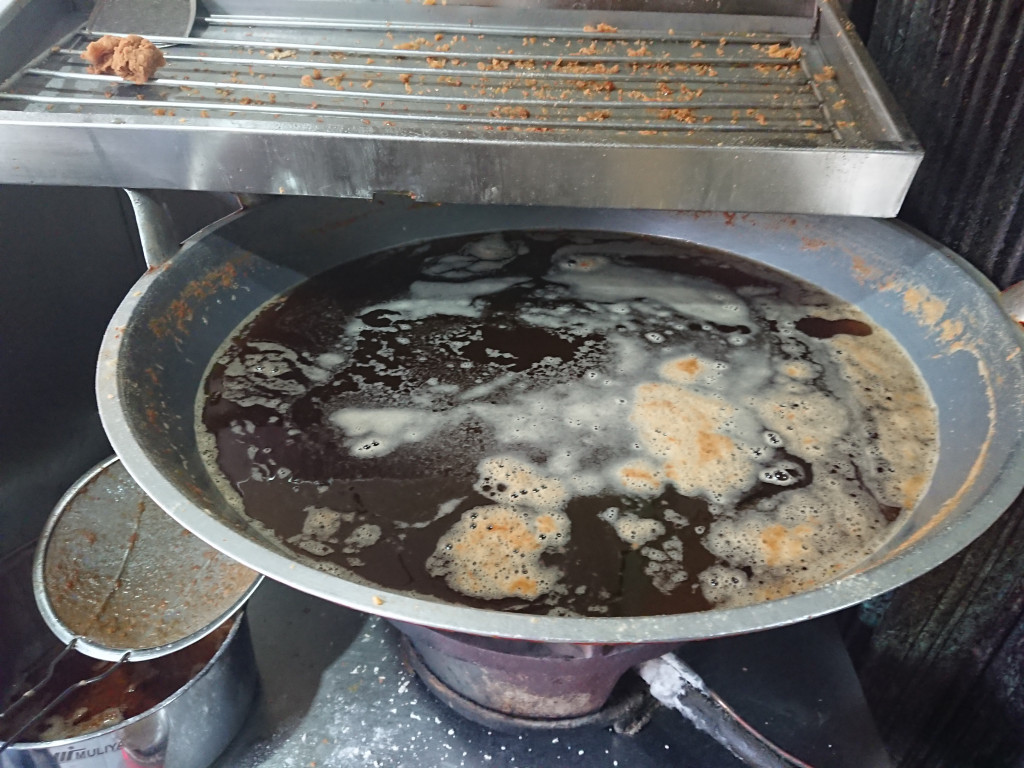
Cooking oil is an essential ingredient in any kitchen. Thousands of commercial establishments engaged in the food and beverage industry, such as hotels, restaurants, caterers, roadside eateries, and street vendors in California, produce hundreds of tons of UCO. So, what happens to all of this toxic waste? Can you reuse cooking oil? The answer is NO! We can’t and shouldn’t reuse any type of oil that has already been in used in high temperature cooking.
Have you ever stopped to think about the effects of used cooking oil on the environment? While cooking oil is a staple in our daily life, used fryer oil can have a significant impact on the environment in a number of ways if we handle them in the wrong ways. It is a shame that people rarely pay attention to the environmental effects of used fats and oils.
Used Cooking Oil (UCO) is a major factor in the degradation of the environment, especially in densely populated urban areas. UCO not only clogs the municipal sewers and reduces the efficiency of Waste Water Treatment Plants but also harms the aquatic and marine life. It can kill fish, birds, plants, and other aquatic life forms by coating them with oily layers, reducing their ability to breathe and choking them to death. UCO is a major factor in polluting water bodies because of its notorious capability to raise the Bio-chemical Oxygen Demand (BOD). As the awareness among the masses increases about the negative impact of re-using cooked oil on human health, more and more UCO is getting discarded and dumped into the environment after each meal.
Effects of Used Cooking Oil on the Environment
Used cooking oil is the oil that has been used for frying, baking, or sautéing. It can be generated in households, restaurants, and other food service establishments. Once the oil has been used, it is no longer suitable for cooking and needs to be disposed of properly.
However, improper disposal of used cooking oil can have a negative impact on the environment. It can lead to soil contamination, water pollution, air pollution, and clogging of drainage systems. Let’s take a deeper look at some of the effects of used cooking oil on the environment –
Soil Contamination:
Improper disposal of used cooking oil can result in soil contamination. When used cooking oil is poured into the soil, it creates a layer that can prevent water and air from reaching the soil. This layer can also contain toxic chemicals that can contaminate the soil and affect the growth of plants. This can lead to a decrease in the quality of soil and reduced crop yields.
Water Pollution:
Pouring used cooking oil down the drain or into a body of water can lead to water pollution. When used cooking oil is mixed with water, it forms a layer that prevents oxygen from reaching aquatic animals and plants. This can lead to the death of aquatic life and disrupt the natural balance of the ecosystem. It can also affect the quality of water and make it unsafe for human consumption.
Air Pollution:
Improper disposal of used cooking oil can also lead to air pollution. When used cooking oil is burnt, it releases harmful gases that can pollute the air. This can lead to respiratory problems and other health issues. It can also contribute to the formation of smog and increase greenhouse gas emissions, contributing to climate change.
Clogging of Drainage Systems
Pouring used cooking oil down the drain can also lead to clogging of drainage systems. Used cooking oil solidifies at low temperatures and can create a blockage in pipes, leading to sewer backups and flooding. This can cause a lot of damage to the environment and can also be costly to repair.
To avoid these effects of used cooking oil, it is important to dispose of used cooking oil properly. One of the best ways to dispose of used cooking oil is to recycle it. Used cooking oil can be recycled into biodiesel, a renewable energy source that can be used to power vehicles and machinery. It can also be used in the production of animal feed, soap, and other products.
In conclusion, the impact of used cooking oil, used fryer oil, and deep fryer oil on the environment can be significant if it is not disposed of properly. Improper disposal can lead to soil contamination, water pollution, air pollution, and clogging of drainage systems. Therefore, it is important to recycle or dispose of used cooking oil properly to avoid these negative impacts and to protect the environment.
Recycle Used Cooking Oil with the Greasy Mikes
Are you a restaurant owner in search of a sustainable way to dispose of your used cooking oil or yellow grease? Your search ends here with Greasy Mikes (by the Grease Company)’ – ONE STOP SHOP FOR ALL YOUR COMMERCIAL KITCHEN PLUMBING NEEDS!
Our used cooking oil collection and recycling service includes a trustworthy and environmentally friendly solution for handling your waste cooking oil disposal requirements. Our team of professional commercial kitchen plumbing experts is devoted to helping you solve any issue regarding grease traps and restaurant cooking oil collection. Instead of browsing for ‘used cooking oil collection companies near me’ on the internet, sign up to our FREE used cooking oil collection and recycling program and reduce the environmental impact of your restaurant’s operations. Contact us TODAY in to discover why we are the top-rated UCO Collector in Southern California.

